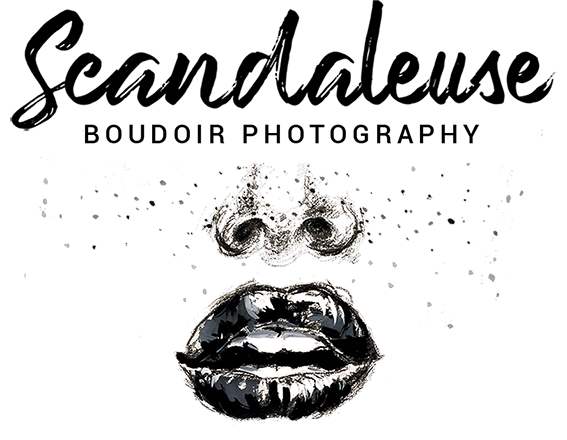Before we begin, a little disclaimer: the following post is based on our own experiences & feelings. This does not substitute professional medical advice or consultations with healthcare professionals.
Have you ever found yourself too fat or too thin out of the blue? Have you ever been deeply challenged by your reflection in the mirror? Have you ever felt oh-so-certain that you have body flaws despite hearing the opposite from loved ones?
If so, welcome to the world of body dysmorphia.
Body-dysmorphia, a big scary word we think never applies to us.
Body what now? The official definition of body-dysmorphia is as follow:
Body dysmorphic disorder (BDD), or body dysmorphia, is a mental health condition where a person spends a lot of time worrying about flaws in their appearance. These flaws are often unnoticeable to others.
Now, if you are like me, you hear “disorder” and you think “well that's not me, I'm not sick or whatever". The minute we slap medical terms on it, it becomes surreal and scary, but let us rephrase that definition:
Body-dysmorphia is when you don't see your body the way it actually is despite being convinced it is a certain way.
The most common example, and the one I personally deal with, is seeing yourself bigger than you actually are.
There are different levels of BDD. For some of us, myself included, we can still live our lives properly. For others, it becomes an obsession that can lead to eating disorders, social isolation and so on.
So, how does body-dysmorphia actually show?
BDD usually shows itself when we become teenagers. Our bodies change fairly quickly, plus, we are leaving our childhood where we pretty much didn't give a crap about our appearance and suddenly, it seems to define us.
Our brain is having a hard time processing this and we are left pointing out everything we think is wrong with us. Except for many of us, it doesn't stop there and we carry it until our adulthood.
Here are of the common ways BDD shows its ugly head:
• Checking yourself in the mirror, repeatedly, focusing on your “flaws”;
• Feeling certain that said flaws make you ugly or even deformed;
• Being convinced that you lost/put on weight based on no concrete proofs whatsoever;
• Trying to “fix” said flaws by over exercising, and often adjusting diet;
• Strongly believing that your flaws are only what other people see;
• Attempting to hide perceived flaws with styling, makeup or clothes;
• Constantly comparing your appearance with others;
• Frequently seeking reassurance about your appearance from others;
• Avoiding social gatherings;
• Feeling completely down for the whole day or more because of your appearance…
The list goes on and on. I don't know about you, but I can safely say that I have experienced over half this list.
What happens to me when the body-dysmorphia monster is knocking on my door and how I deal with it:
I am in my 30’s and I still involuntarily carry the BD monster in my back pocket. I don’t think it will ever go away. BUT, thanks to my experience and my work, I manage to considerably shorten its stays. My BD monster is weight related: I feel like I am bigger than usual especially around my waist.
Usually, it happens when I am off my eating and exercising routine for a week. If I didn’t prioritize my workouts sessions, and ate like crap, I can guarantee you that I am going to think I put on weight and it is going to make me feel guilty and shitty.
My remedy? Giving myself a severe reality check.
Sometimes, you need to give your head a shake.
1) I gather objective facts about why I would be feeling this way.
Like I said, it could be because I didn’t stick to my routine but it can also be because I am about to start my period and I feel bloated or I haven’t slept well for a while and/or I’m stressed. This really helps to remind myself that the vision I have of my body is very likely inaccurate because my mind doesn’t have the good fuel I usually give it.
2) I remind myself that it is physically impossible to have drastic body change in one week.
You’re not going to put on or lose 10 pounds in a week. Biologically, weight changes take a lot longer to show. Your body is smart and if you take a negative turn on your eating habits, it won’t show for a little while.
3) I remind myself that my body is doing its thing during the day and that it is normal if it looks different.
This one is for those who, like me, wish for a constant flat stomach. It’s a myth. Our bodies digest, they bloat, they eliminate. I’m actually pretty damn lucky it does all of that for me. Side note: our lower abdomen as a little cushion because it is protecting our uterus. When you see it like this, typing “how to lose lower belly fat” on Google makes a lot less sense.
4) I remind myself that I have felt this way in the past and have been very wrong.
The first time I realized I had a BD monster was when I looked at photos of my teenaged years, when I felt incredibly fat and I obviously wasn’t. It is usually enough to tell myself that there is a good chance I could be doing the exact same thing right now.
5) I let go of the guilt
Scheduling more workouts and diet change is very common for me as an attempt to “right my wrongs”. When I catch myself doing this, I sit my ass down and remember that, hey, I don’t work out to lose weight, I work out because it makes me feel good. And yeah, maybe I went a bit overboard food wise, but I needed it at the time and it also came with good memories with my loved ones.
So fuck it.
Yes, F U C K I T.
I did nothing wrong, there is nothing to fix, all I need to go back to what feels good and I will. and so will you.
I truly hope that reading this will help you feel less alone and give you some tools to kick your Body-Dysmorphia monster in the balls. We have written additional tips here, in case you need some. .
Here are some helpful books if you are looking to do some digging and heal yourself: The Broken Mirror by Katharine Phillips & Shattered Image by Brian Cuban.
If you feel overwhelmed, don’t hesitate to ask for help and find a therapist to guide you through it all. You don’t have to do this alone


